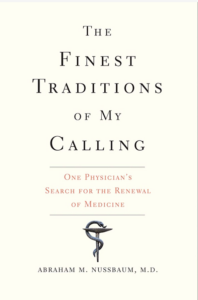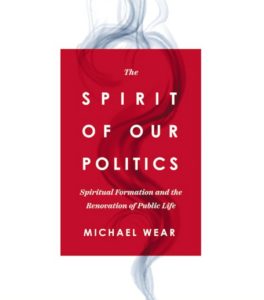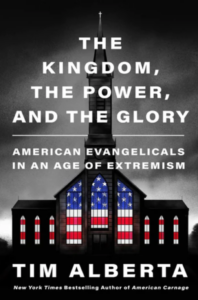 Janet Liljestrand, M.D., M.A.
Janet Liljestrand, M.D., M.A.  Mr. B was in solitary confinement. His crime? Candida auris, a fungus which is particularly difficult to treat, grew from one of his cultures taken during a fever while a patient in a nursing home. Referred to as an opportunistic infection, the average person is unlikely to become ill with C. auris, but those in poor health or with an immune deficiency are susceptible. The CDC has recommended that a patient who has a culture that is positive for C. auris, regardless of the site of the culture, be in isolation for the duration of the patient’s time in the hospital, rehab, or nursing home. The assumption: once positive, always positive. The nursing home did not call Mr. B’s situation solitary confinement. Instead, he was under infectious disease isolation requiring everyone who entered his room, including his wife of many years, to gown, glove, and mask up before making any contact with him. A warm ungloved hand laid comfortingly on his bare arm? Not possible! On one occasion, Mr. B’s sons, who lived at a distance, wanted to mask, gown and glove Mr. B and take him outside in a wheelchair giving him a change of environment. NOT ALLOWED lest he infect the hallway! Where did he likely acquire this organism? Which is more likely, his home or the nursing home or even a previous hospital admission? Who else might have been positive for the offending organism if cultures were performed routinely in the nursing home? Months before, Mr. B had a medical event that landed him in the ICU for several days. In spite of the best efforts of his doctors, his health continued to deteriorate over the next several months until his wife, with her own health issues, could no longer manage his care at home. A nursing home appeared to be the best and only real option. After the positive culture, he was placed in isolation. Several days later, he was also placed on hospice due to his ongoing health issues, not C. auris. He spent the last 6 weeks of his life in solitary confinement, never again being touched by an ungloved hand or seeing more than the eyes of the faces of those who cared for him. Did this contribute to Mr. B’s disorientation in his final weeks? Did the isolation technique itself intimidate some who would otherwise have come to see him, increasing his time alone? No one wants any patient in the hospital or nursing home to die from an infection acquired while a patient. COVID certainly proved the unfortunate outcomes that can occur when mixing the acutely infectious and the frail. Both medicine and our current culture, with institutional care the norm, can often dehumanize the frail and needy. Did the isolation requirement do so to Mr. B? Would visitors have the same requirements of gown and mask if Mr. B’s care had been at home? Home care, in our current health care structure, is hindered by lack of available able-bodied and willing family members and lack of affordability of at-home trained caretakers. Is it time for healthcare and the culture at large to rethink care for the frail, the elderly, and dying? Should groups, such as churches and clubs, consider ways in which the needy among us can be more easily cared for at home? The needs are obvious. The answers, less so. The Tennessee Center for Bioethics & Culture encourages respectful discussion and debate of bioethics issues, and strongly supports freedom of speech. To that end, we invite and welcome other voices to the discussion of bioethics issues. Invited authors’ views are their own, and do not necessarily represent those of The Tennessee Center for Bioethics & Culture.
Mr. B was in solitary confinement. His crime? Candida auris, a fungus which is particularly difficult to treat, grew from one of his cultures taken during a fever while a patient in a nursing home. Referred to as an opportunistic infection, the average person is unlikely to become ill with C. auris, but those in poor health or with an immune deficiency are susceptible. The CDC has recommended that a patient who has a culture that is positive for C. auris, regardless of the site of the culture, be in isolation for the duration of the patient’s time in the hospital, rehab, or nursing home. The assumption: once positive, always positive. The nursing home did not call Mr. B’s situation solitary confinement. Instead, he was under infectious disease isolation requiring everyone who entered his room, including his wife of many years, to gown, glove, and mask up before making any contact with him. A warm ungloved hand laid comfortingly on his bare arm? Not possible! On one occasion, Mr. B’s sons, who lived at a distance, wanted to mask, gown and glove Mr. B and take him outside in a wheelchair giving him a change of environment. NOT ALLOWED lest he infect the hallway! Where did he likely acquire this organism? Which is more likely, his home or the nursing home or even a previous hospital admission? Who else might have been positive for the offending organism if cultures were performed routinely in the nursing home? Months before, Mr. B had a medical event that landed him in the ICU for several days. In spite of the best efforts of his doctors, his health continued to deteriorate over the next several months until his wife, with her own health issues, could no longer manage his care at home. A nursing home appeared to be the best and only real option. After the positive culture, he was placed in isolation. Several days later, he was also placed on hospice due to his ongoing health issues, not C. auris. He spent the last 6 weeks of his life in solitary confinement, never again being touched by an ungloved hand or seeing more than the eyes of the faces of those who cared for him. Did this contribute to Mr. B’s disorientation in his final weeks? Did the isolation technique itself intimidate some who would otherwise have come to see him, increasing his time alone? No one wants any patient in the hospital or nursing home to die from an infection acquired while a patient. COVID certainly proved the unfortunate outcomes that can occur when mixing the acutely infectious and the frail. Both medicine and our current culture, with institutional care the norm, can often dehumanize the frail and needy. Did the isolation requirement do so to Mr. B? Would visitors have the same requirements of gown and mask if Mr. B’s care had been at home? Home care, in our current health care structure, is hindered by lack of available able-bodied and willing family members and lack of affordability of at-home trained caretakers. Is it time for healthcare and the culture at large to rethink care for the frail, the elderly, and dying? Should groups, such as churches and clubs, consider ways in which the needy among us can be more easily cared for at home? The needs are obvious. The answers, less so. The Tennessee Center for Bioethics & Culture encourages respectful discussion and debate of bioethics issues, and strongly supports freedom of speech. To that end, we invite and welcome other voices to the discussion of bioethics issues. Invited authors’ views are their own, and do not necessarily represent those of The Tennessee Center for Bioethics & Culture.
Worth Your Time: Selections from the Bioethics Library
 C. Ben Mitchell, Ph.D. Distinguished Fellow The Tennessee Center for Bioethics & Culture
C. Ben Mitchell, Ph.D. Distinguished Fellow The Tennessee Center for Bioethics & Culture
Abraham M. Nussbaum, The Finest Traditions of My Calling: One Physician’s Search for the Renewal of Medicine
Nussbaum is a physician’s physician and a writer’s writer. He is currently Chief Education Officer at Denver Health and an associate professor of psychiatry at the University of Colorado School of Medicine. He acknowledges as his teachers those whom many of our readers will know, including Farr Curlin, Dan Sulmasy, Lydia Dugdale, Warren Kinghorn, and more. This book pushes back against some of the ways contemporary medicine is broken: the temptation to see patients as parts, medicine as money, efficiency as effectiveness, etc. Nussbaum is a Hippocratic humanist, in the best sense of both of those traditions. Filled with stories of his training, his experiences, and his patients, the book is a compendium of medical wisdom. Read this one right away.
Michael Wear, The Spirit of Our Politics
As we approach a national election in the United States, it is even more important to ask ourselves what kinds of persons we ought to be than for whom we are going to vote. Michael Wear is the founder, president, and CEO of the Center for Christianity and Public Life. Wear begins by acknowledging that “our politics is sick;” and the malady is not as much like appendicitis as it is leukemia. “We don’t need an appendectomy; we need new marrow in our bones” he argues. From that diagnosis, he offers a prescription for Christian engagement in the form of Christian discipleship. One of the most helpful chapters in the book is its word to parents and pastors. The volume is another volume to be read right away during an American election cycle. The patient’s prognosis is dismal unless some changes are made.
Tim Alberta, The Kingdom, the Power, and the Glory: American Evangelicals in an Age of Extremism
Another timely examination of the contemporary political status quo (which is Latin for the mess we’re in). A Christian and pastor’s son himself, Alberta is staff writer for The Atlantic, and has written for dozens of other publications. His volume shows that evangelical Christians are both the most polarized and polarizing people living in America today. Even with all it’s faults, American democracy is the best thing going. But it is under the threat of irretrievable fragmentation and potential implosion. This volume chronicles the political flashpoints of the past several years and, among other things, enjoins Christians to remember that Jesus taught that his Kingdom is not of this world (John 18:36). Sections of this book will curl your hair and make you mad, others will encourage you about the Christian witness and wisdom of followers of Jesus.



